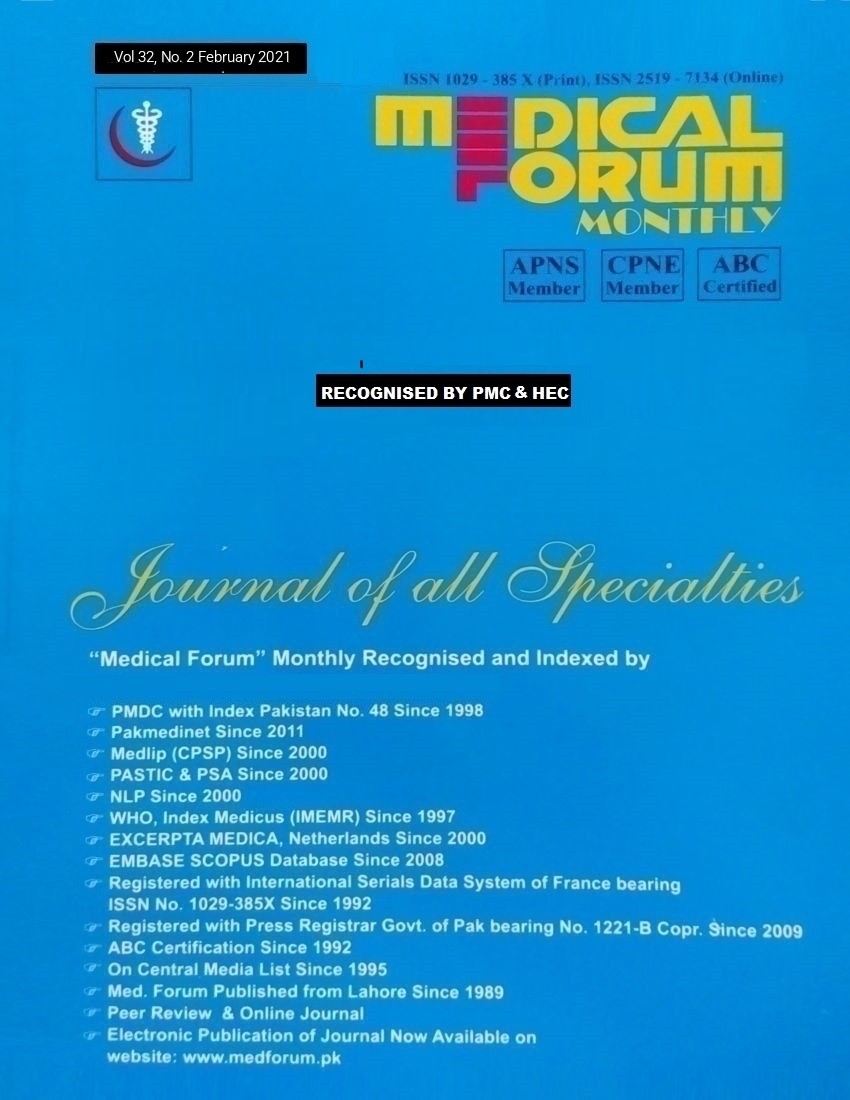
3. Pancytopenia in Balochistan Population
Zohra Samreen1, Muhammad Idrees Achakzai2, Iftakhar ul Haq Tareen3, Bezan Baloch4, Ashiq Hussain5 and Muhammad Kamran Taj6
ABSTRACT
Objective: Pancytopenia is a common hematological parameter detected in Hospital. It is important to study pancytopenia for better management of patient.
Study Design: Cross Sectional study
Place and Duration of Study: This study was conducted at the Department of Medicine Bolan Medical Complex Hospital Quetta and this study was conducted from November, 2017 till February, 2019.
Materials and Methods: Patients presenting to medicine outpatient department of Bolan Medical Complex Hospital fulfilling the inclusion criteria were selected followed by their detailed history and physical examination. Informed consent was taken from all the patients.
Results: Pancytopenia represents a wide range of age groups and most pancytopenia is purely of bone marrow dysfunction origin. Overall, 65% male subjects were observed with pancytopenia as compared to 35% female patients. The results also showed that patients with age 21-40 were highly affected by pancytopenia (45%) followed by > 41 years (40%) and < 20 years (15%). Moreover, pancytopenia was more common in underweight patients (78%) followed by normal weight (18%), overweight (3%) and obese (1%). It was seen in study that illiterate patients presented more with pancytopenia (64%) than literate (36%). While in case of socioeconomic status pancytopenia was seen to be more frequent in upper middle class (55%) followed by lower middle class (30%) and lower class (15%).
Conclusion: A comprehensive clinical history and investigations give very useful information in the entire workup of patients with pancytopenia for understanding the disease processes, planning extra investigations, management, and ascertain the cause.
Key Words: Pancytopenia, Bone, Marrow, Balochistan
Citation of article: Samreen Z, Achakzai MI, Tareen I, Baloch B, Hussain A, Taj MK. Pancytopenia in Balochistan Population. Med Forum 2021;32(2):12-15.
